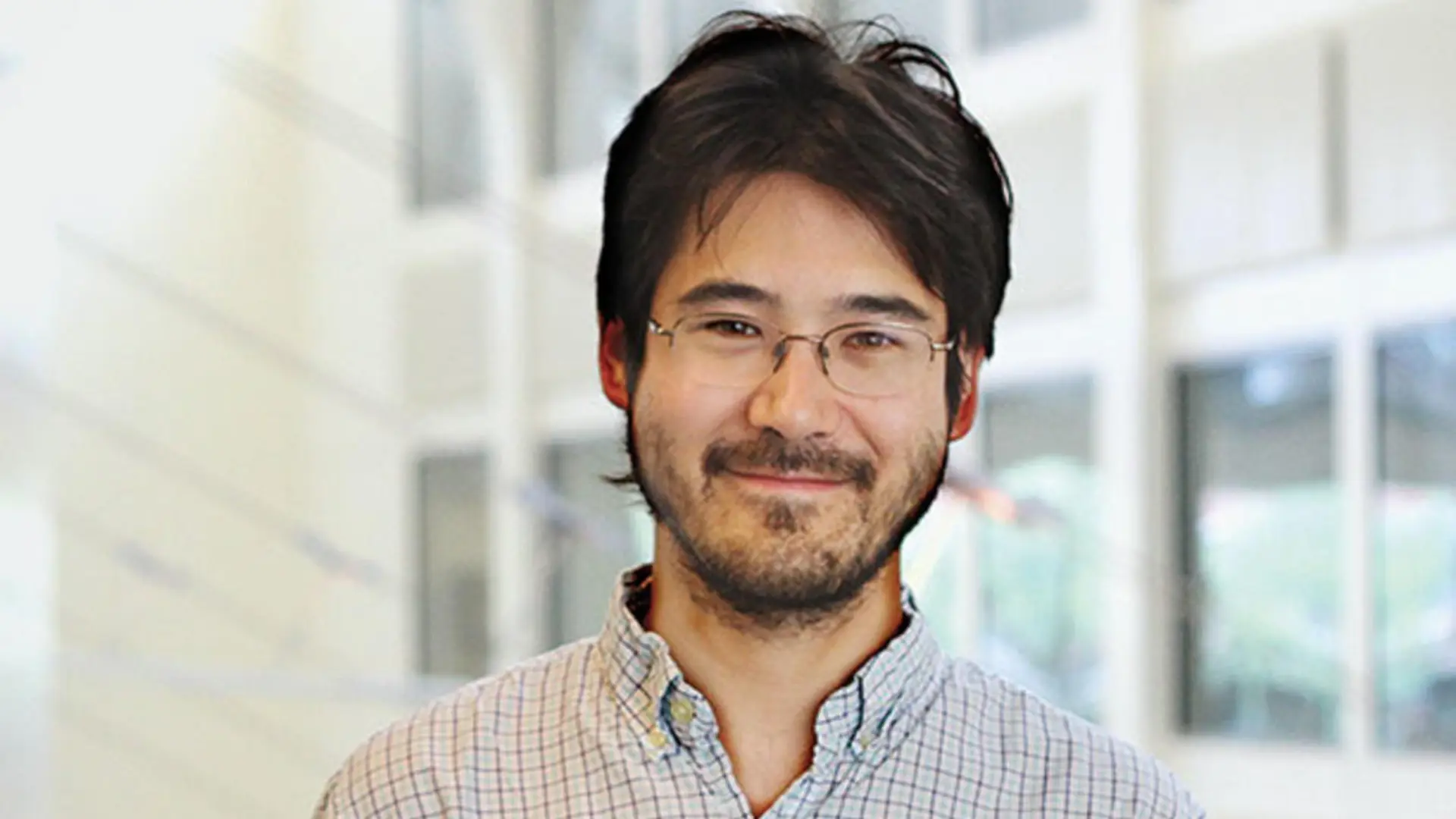Top 10 Highest IQs Ever Recorded: Meet the Smartest People in History
Updated on
Published on

Intelligence Quotient (IQ) scores provide a numerical snapshot of human cognitive ability, and throughout history a few remarkable people have attained the highest IQ ever recorded. This list ranks the top ten people with the highest IQ scores in history – including both verified test results and historical estimates. These genius IQs range from the high 190s to as high as 250 or more, showcasing extraordinary minds across different eras. While IQ is not a perfect measure of intelligence, the top IQ scores in history offer a fascinating glimpse into individuals often regarded as the smartest people in the world. Read on to meet the people with the highest IQs ever documented and learn about their lives, achievements, and how their IQ scores were measured or estimated.
William James Sidis – IQ 250–300
Who he was: William James Sidis was an American child prodigy often cited as having the highest IQ ever recorded – estimated between 250 and 300. Born in 1898, Sidis astonished the world with precocious talents: he could read English by age 2 and write in French by age 4. At age 11, he entered Harvard University to study mathematics, becoming one of the youngest students in its history. Sidis developed a new logarithmic formula at age eight and gave a celebrated lecture on four-dimensional physics while at Harvard. Fluent in many languages and a prolific writer, he created a constructed language and authored works on cosmology and psychology during his teens. Despite his brilliant mind, Sidis retreated from academia in adulthood, working modest jobs and shunning publicity. His life was marked by immense intellect but also personal turmoil – he died in obscurity in 1944 at age 46.
How his IQ was measured: Sidis’s IQ was never measured by a modern standardized test, but accounts from psychologists and his family formed the basis of his legendary score. In the 1940s, psychologist Abraham Sperling wrote that Sidis’s sister claimed William had scored “the very highest that had ever been obtained” on an IQ test given by a psychologist – translating to an IQ between 250 and 300. This astonishing estimate, though frequently cited, is not based on any official record but rather on secondhand reports. Sidis did take general intelligence exams for civil service positions, scoring phenomenally by those records. It’s important to note that the 250–300 IQ figure is speculative. Nonetheless, Sidis’s unparalleled intellectual feats at a young age have led many to regard him as the benchmark for the highest IQ in the world ever documented.
Terence Tao – IQ 225–230
Who he is: Terence “Terry” Tao is an Australian-American mathematician frequently credited with the highest confirmed IQ of any living person. Born in 1975, Tao was a true math prodigy – he taught himself to read by age 2 and was handling university-level calculus by age 9. He earned his bachelor’s degree at 16 and a Ph.D. in mathematics by 21. Tao has made groundbreaking contributions in areas like number theory, harmonic analysis, partial differential equations, and combinatorics. Notably, he co-authored the Green–Tao theorem, which proved an infinite number of prime number patterns. By age 24, he became a professor at UCLA, and in 2006 he won the Fields Medal (the “Nobel Prize” of math) for his exceptional work. Nicknamed the “Mozart of Math” for his prolific output, Tao has published over 300 research papers and several books. Despite his towering intellect, colleagues praise his humble and collaborative spirit.
How his IQ was measured: Tao’s IQ is estimated between 225 and 230, based on testing in childhood and academic assessments. He reportedly scored well above genius level on childhood IQ tests; one source notes that a standard test at age 8 put him above IQ 200, and later evaluations aligned around the 230 mark. This places Tao in rarified territory – well into the one-in-a-billion intellect range. His score is considered “confirmed” in the sense that it comes from actual supervised IQ testing, unlike many historical figures whose IQs are retroactively estimated. Thus, Tao is widely regarded as the person with the highest IQ in the world today, and his genius-level problem-solving abilities have been evident through his stellar accomplishments in mathematics.
Marilyn vos Savant – IQ 228
Who she is: Marilyn vos Savant is an American magazine columnist and author who gained fame for having the highest recorded IQ in the Guinness Book of World Records. Born in 1946, vos Savant topped IQ tests from a young age – but her parents kept her scores private to give her a normal childhood. In 1985, however, Guinness named her as the person with the world’s highest IQ, bringing her widespread media attention. Capitalizing on her notoriety, she began the popular “Ask Marilyn” column in Parade magazine, where she answers puzzles and questions from readers. Marilyn’s clarity of thought became legendary in 1990 when she correctly solved the Monty Hall probability problem in her column – a solution that initially drew 10,000 letters (many from PhDs) insisting she was wrong. She was, in fact, correct, and eventually vindicated. Beyond puzzles, vos Savant has authored books on logical thinking and become a public speaker. Her life’s work illustrates how an extraordinary IQ can be channeled into educating and entertaining millions.
How her IQ was measured: Marilyn vos Savant’s IQ was measured on two different tests. As a child, at age 10, she took the Stanford-Binet intelligence scale (1937 edition) and scored the IQ equivalent of 228 – meaning her mental age far exceeded her chronological age. Decades later, in the 1980s, she also took an adult high-ceiling exam known as the Mega Test, scoring 46 out of 48, which corresponded to an IQ around 186. Guinness World Records cited both scores but officially credited the 228 figure as the highest. From 1986 to 1989, every edition of Guinness listed vos Savant as having the world’s top IQ. (They retired the category in 1990 due to the controversy in comparing high IQs.) Thus, Marilyn vos Savant’s IQ is not just hearsay – it’s documented in record books, making her a synonym for the highest IQ ever recorded in a tested, verifiable sense.

Christopher Hirata – IQ 225
Who he is: Dr. Christopher Hirata is an American astrophysicist who displayed an astronomical intellect from childhood. Born in 1982, Hirata showed genius-level aptitude in science and math early on. At age 13, he became the youngest U.S. contestant to win a gold medal at the International Physics Olympiad. By 14 he was accepted into Caltech for college, and at 16 he was working with NASA on projects exploring the possibility of colonizing Mars. Hirata earned his PhD in physics from Princeton by the age of 22, specializing in cosmology. He has since become a noted researcher in astrophysics, teaching at Caltech and Ohio State University. His work includes studies of dark energy, gravitational lensing, and the large-scale structure of the universe. Despite his young age, Hirata received the New Horizons in Physics Prize in 2018 for his contributions to understanding the early universe. His brilliant career trajectory – from child prodigy to leading scientist – exemplifies real-world impact from a high intellect.
How his IQ was measured: Christopher Hirata has a confirmed IQ of 225, placing him among the highest ever recorded. This score was reported when he was a teenager. Both Hirata and Terence Tao are noted as prodigies who took actual IQ tests that yielded exceptionally high results. Hirata’s score of 225 has been widely cited in the context of “genius IQ” lists and was mentioned by the BBC as the second-highest verified IQ score on record. The specific testing details are not publicly divulged, but likely it was a professionally administered IQ test in his early teen years, given the academic programs he was involved in. At 225, Hirata’s IQ is essentially off the charts – well above the 160+ range that marks genius – and it aligns with his extraordinary academic feats.

Johann Wolfgang von Goethe – IQ 210–225
Who he was: Johann von Goethe was a German polymath of the 18th–19th century, often regarded as one of the greatest geniuses in Western history. Born in 1749, Goethe was a true Renaissance man – renowned as a writer, scientist, and statesman. He penned masterpieces of literature, including the tragic play Faust and the novel The Sorrows of Young Werther, which had profound influence on European culture. Beyond literature, Goethe made scientific contributions: he developed an early theory of color and vision (opposing Newton’s ideas on optics) and researched plant morphology. He also dabbled in anatomy, discovering the intermaxillary bone in humans. Goethe’s breadth of accomplishments – spanning poetry, drama, philosophy, and natural science – exemplified intellectual versatility. He became an important government minister in Weimar as well. Esteemed by contemporaries, Goethe’s name is nearly synonymous with “polymath.”
How his IQ was measured: Goethe’s IQ score of 210–225 is an estimated figure, since he lived long before modern IQ tests. This estimate comes from a famous historiometric study by psychologist Catharine Cox in 1926, which retroactively evaluated the intelligence of historical geniuses. By analyzing Goethe’s achievements, writings, and biographical data (such as learning and productivity in youth), Cox assigned him one of the highest scores in her study – roughly 210 on the IQ scale (with some analyses extending it up to 225). Other sources have since repeated the IQ 220 figure for Goethe. Of course, such numbers are only rough scholarly guesses. They indicate that if an IQ test had existed in Goethe’s time, he might have scored in the stratospheric genius range. While not a recorded IQ in the testing sense, Goethe’s estimated IQ underscores his reputation as one of history’s brightest minds – a genius IQ well into the 200s based on his extraordinary body of work.
Kim Ung-Yong – IQ 210
Who he is: Kim Ung-Yong is a South Korean former child prodigy who held the Guinness world record for highest IQ as a youth, with a reported score around 210. Born in 1962, Kim’s prodigious abilities showed almost immediately – he was speaking at six months old and could read several languages by age 3. In early childhood he mastered Korean and learned Japanese, English, German, and many other languages. By age 3 he was solving calculus problems, and at 5 he wowed Japanese TV audiences by solving complex differential equations on camera. Kim entered university as a guest student around age 4 and was later invited to America by NASA at just age 8, where he studied and conducted research in physics for several years. Despite these early achievements, Kim eventually returned to Korea, earned a Ph.D. in civil engineering, and chose a low-profile career as an engineer and professor. He has spoken out against the pressures of being labeled a “genius,” emphasizing that happiness and personal fulfillment matter more than chasing records.
How his IQ was measured: Kim Ung-Yong’s IQ was tested in childhood using the Stanford–Binet Intelligence Scale, where he scored above 210 – effectively off the standard charts. This astonishing result led the 1980 edition of the Guinness Book of World Records to list Kim as having the “Highest IQ” at the time, with an estimate of about 210. It’s reported that at age 4, Kim scored 210 on an IQ test designed for much older children. Because his chronological age was so low, his mental abilities translated to an extremely high ratio IQ. Guinness noted his score as “over 200.” This was an officially recorded IQ in the sense that Guinness verified it through test records and publicized it.
Edith Stern – IQ 200+
Who she is: Edith Stern is an American prodigy and inventor who was propelled into the spotlight as a “home-grown genius” in the 1950s and ’60s. Born in 1952, Edith was the subject of a bold experiment by her father, Aaron Stern, who announced at her birth his plan to raise a genius. He subjected Edith to intensive education from infancy – flashcards in the crib, constant learning immersion – and it yielded incredible results. By the age of 5 Edith had reportedly read the entire Encyclopedia Britannica. She started college when she was just 12, and by 15 she was already teaching mathematics at the college level. Edith went on to earn a Ph.D. in math. As an adult, she built a successful career as a computer scientist and inventor at IBM, holding numerous patents. Despite the pressures of her upbringing, she is often cited as a proof-of-concept that early enriched education can produce exceptional intellectual abilities.
How her IQ was measured: Edith Stern’s IQ was tested multiple times during her youth, consistently yielding scores in the genius range (above 200). Her father downplayed the significance of IQ numbers, but he acknowledged that Edith’s IQ “is above 200” – effectively off the scale of most standardized tests. In practice, early IQ tests for someone like Edith would have been ratio-based (mental age over chronological age), so by excelling years ahead of her age group in knowledge, her calculated IQ surpassed 200. While exact figures weren’t publicized (some sources cite 200–203), it’s clear she set records in childhood intelligence testing. Edith’s case was famous enough that she was included in lists of the world’s highest IQs.
Evangelos Katsioulis – IQ 198
Who he is: Evangelos Katsioulis is a Greek psychiatrist and educator known internationally for his exceptionally high IQ test scores. Born in 1976, Katsioulis showed strong aptitudes in science and math, competing in math and physics contests as a student. He pursued an extensive education, earning degrees in fields ranging from medicine and psychology to philosophy. Alongside his psychiatric practice, Dr. Katsioulis has been active in the high IQ community. In 2013, he founded the Greek Society of High Intelligence, requiring an IQ in the top 2% for membership. He also established the World Intelligence Network (WIN), an international coalition of high IQ societies, to connect highly gifted individuals around the globe. In popular media, Katsioulis has been highlighted as one of the smartest living people, though he keeps a relatively low profile outside of IQ-related circles.
How his IQ was measured: Evangelos Katsioulis has taken numerous advanced IQ tests, often scoring at the very top. His IQ is reported to be around 198 on the Stanford-Binet scale – one of the highest ever recorded on an adult IQ test. This score comes from supervised high-range IQ tests that are designed to measure the extreme tail of intelligence. Katsioulis’s results have been verified by organizations like the World Genius Directory. Since different tests can yield slightly different scores, the ~198 figure is an approximate peak value. Notably, a score of 198 places Katsioulis about 6 standard deviations above the average – essentially one in many millions in rarity.
Christopher Michael Langan – IQ 190–210
Who he is: Christopher Langan is an American autodidact often dubbed “the smartest man in America” by the media for his sky-high IQ. Born in 1952, Langan grew up in poverty and largely educated himself. His intellectual gifts appeared early – he reportedly spoke at 6 months old and taught himself to read by age 3. Langan achieved a perfect score on the SAT, even though, as legend has it, he took a nap during the test. Langan’s formal education was cut short, but he continued to pursue knowledge independently. He worked in various blue-collar jobs – construction worker, bouncer, horse rancher – gaining a sort of folk-hero status as a genius in an unlikely life situation. Langan is most known for developing an ambitious theory of the universe called the “Cognitive-Theoretic Model of the Universe” (CTMU), which he self-published. He has been featured in documentaries and books exploring why super-intelligent individuals don’t always follow conventional paths to success.
How his IQ was measured: Christopher Langan’s IQ has been reported to be in the 190–210 range, based on scores from high-ceiling IQ tests. In the 1980s, he took a battery of IQ exams, including the ultra-hard “Mega Test” designed by Ronald Hoeflin, where he achieved one of the highest scores ever recorded. Langan was briefly listed alongside Marilyn vos Savant in the Guinness Book of Records under a special high-IQ category (using the pseudonym “Eric Hart”) before Guinness discontinued that listing. One report puts Langan’s IQ around 195. Although these scores were achieved on non-traditional tests not used in clinical settings, his repeated performance at the very apex of the scale firmly establishes him among the top IQ scores in history.
Rick Rosner – IQ 190
Who he is: Rick Rosner is an American television writer and entertainment personality who is also famed for his exceptionally high IQ. Born in 1960, Rosner’s life has followed an unconventional path for a genius. He worked in jobs like stripping, bouncing at bars, and roller-skating waitering – an eccentric résumé he often jokes about. In the late 1980s, Rosner turned his focus to Hollywood, writing for TV shows and even appearing on camera. He wrote for the quiz show Hollywood Squares and created a few reality TV concepts. Rosner gained additional notoriety for a high-profile 2000 lawsuit against Who Wants to Be a Millionaire, after he missed a question he believed was flawed. Despite his media endeavors, Rosner is best known in intellectual circles for his IQ exploits: he has taken dozens of IQ tests for self-improvement and competition, chasing ever higher scores.
How his IQ was measured: Rick Rosner has one of the highest IQ scores ever reported on various tests. He is said to have an IQ around 190, based on results from ultra-high-end IQ examinations. Notably, Rosner scored 47 out of 48 on Ronald Hoeflin’s Mega Test in 1991, a result equating roughly to IQ 190 and sufficient for admission into the world’s most selective high-IQ society. He had earlier taken the same test in 1985 and scored 44/48, then studied and improved his score on the retake. The Mega Test, though controversial and non-standardized, was specifically designed to measure IQs above the 99.9999th percentile, and Rosner’s near-perfect result places him at that extreme end.
FAQ
Who has the highest IQ ever recorded?
William James Sidis is widely believed to hold the highest IQ ever recorded, with estimates ranging from 250 to 300.
What IQ score qualifies as “genius”?
A genius IQ typically starts at 140, but the individuals on this list have IQs well above 190, placing them in the rarest percentiles of human intelligence.
How are extremely high IQ scores measured?
Testing often involves extended versions of the Stanford–Binet or specialized high-ceiling tests like the Mega Test, designed to capture scores beyond the standard range.
Are IQ scores the only measure of intelligence?
No. While IQ tests assess logical reasoning and problem-solving, creativity, emotional intelligence, and practical skills are also vital aspects of overall intelligence.
Can someone raise their IQ?
While core IQ is relatively stable, engaging in lifelong learning, problem-solving, and mental challenges can improve cognitive performance and test outcomes.
Sources
- BBC Science Focus Magazine – “This is the highest IQ recorded in the world in 2025,” T. Saunders & T. Howard (2024).
- Science ABC – “12 People Who Have the Highest IQ Ever Recorded,” S. Ghosh (2023).
- Guinness World Records – Various editions (1980s).
- MentalUP Blog – “Top 25 People With the Highest IQ in the World” (2025).
- Wikipedia entries on William James Sidis, Terence Tao, Marilyn vos Savant, Christopher Hirata, Kim Ung-Yong, Johann Goethe, Edith Stern, Evangelos Katsioulis, Christopher Langan, and Rick Rosner.







